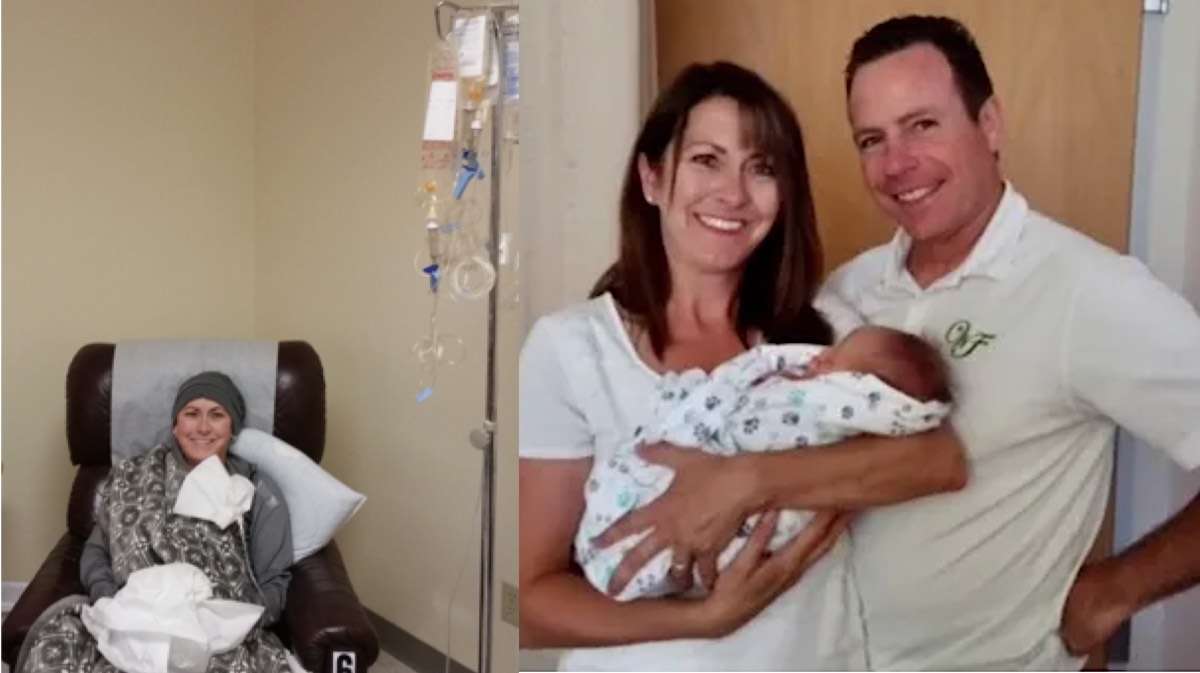One Simple Change Cut Accidental Albatross and Seabird Deaths by 98%: 'Absolutely amazing'
Saving over 20,000 birds from death by bycatch entanglement, Namibian fishermen have used bird-scaring lines on the backs of their boats.

A pioneering California oncologist is doubling the success rates for cancer treatment-and one mom was so thrilled with her outcome that she reached out to a stranger recommending the clinic, and now the new friends are forever bonded as stalwart survivors of terminal diagnoses.
When Maria Lewis first felt a lump, her heart sank because she had lost many family members to cancer. She was diagnosed with triple negative breast cancer-meaning it did not have any of the receptors that are commonly found in breast cancer-and was given 3-6 months to live with little hope of any treatment working.
After being told to prepare for the worst, the 50-year-old with four children living at home traveled to Los Angeles after searching online for some help.
She went to see Dr. Robert Nagourney, who uses the emerging technique of 'functional profiling' to test which drugs will work in any patient using samples of the actual tumors or fluid.
Basically, this involves killing a patient's tumor in the lab first, based on which FDA-approved drugs and drug combinations work best, then providing those to the patient-using personalized medicine based not on genomics but on cell biology.
Nagourney had become disenchanted with the trial and error approach he witnessed during fellowships at Georgetown and elsewhere, and decided that there must be a better way. Today, his approach is catching on around the world, given his patients' success.
By the time Maria arrived in his clinic, she was at stage 4-with a large 6 cm tumor on her breast, a tumor on her kidney, and lymph node involvement.
One week after going home to Utah, Dr. Nagourney finished his testing and she returned to receive chemotherapy based on the results in the lab that targeted just the right drugs. Three weeks after that chemo session, she could no longer feel her tumor. Three weeks after that, the tumor was gone.
After Maria recovered, she heard about Shellie Chrum in St. Louis (a friend of her neighbor's) who was dealing with a similar dire diagnosis: widely metastatic breast cancer that had spread to her lungs and bones, including the spinal column. She immediately called Shellie.
"Although we have never met in person, we have spoken on the phone for many hours," Maria told WS. "Having had a life threatening cancer diagnosis myself, and having been blessed with the results that I have had, I want to shout it from the rooftops so that everyone can hear and learn from my experience with Dr. Nagourney's functional profiling test."
Shellie took the advice of her new friend and went to California last summer so Nagourney could remove fluid from the 43-year-old, which provided ample cells for his EVA/PCD analysis (Ex-Vivo Analysis of Programmed Cell Death).
After he determined she was HER2-positive (for human epidermal growth factor 2) Nagourney knew that she would be a good candidate for the common drug combo Trastuzumab (Herceptin) and Pertuzumab (Perjeta), but how to address the disease involving lung and bone left the doctor puzzling.
He discovered a highly favorable interaction between Vinorelbine and Trastuzumab, and added a low dose Everolimus-which resulted in a four-drug combo that "no other breast cancer patient had ever received."
After just two cycles of the drugs, given on the first and eighth day of a three-week cycle, the scan results compared with late-June were "stunning… and consistent with a complete or near-complete response to therapy".
(Click below to continue the story and find out how much it costs…)
Be the first to comment